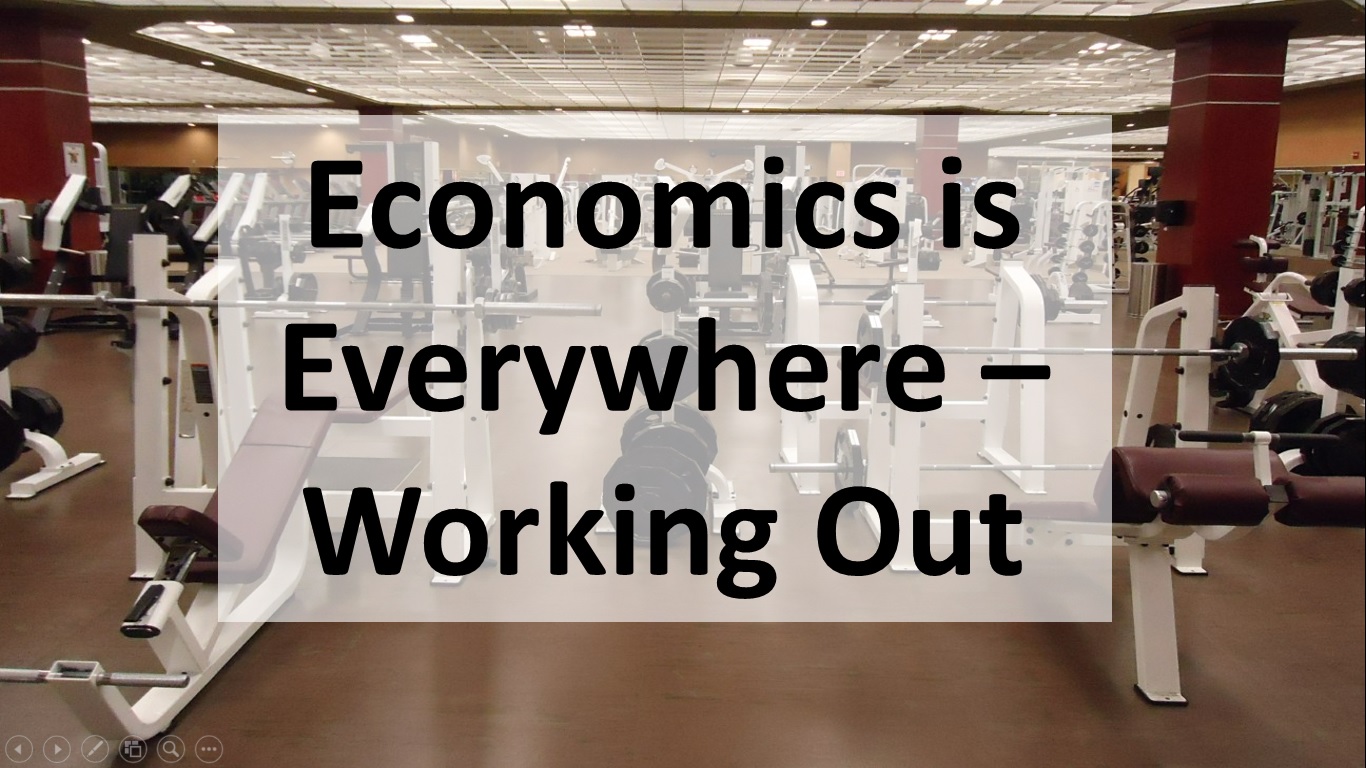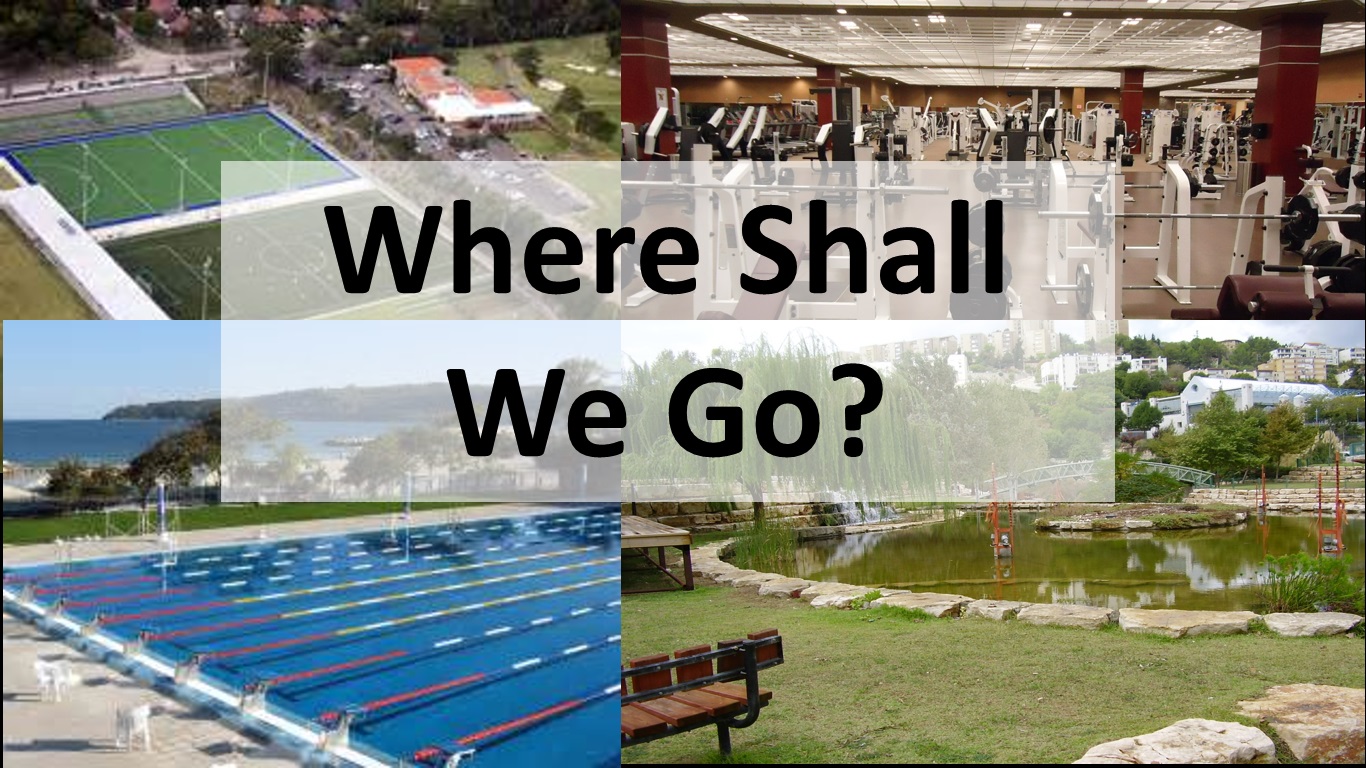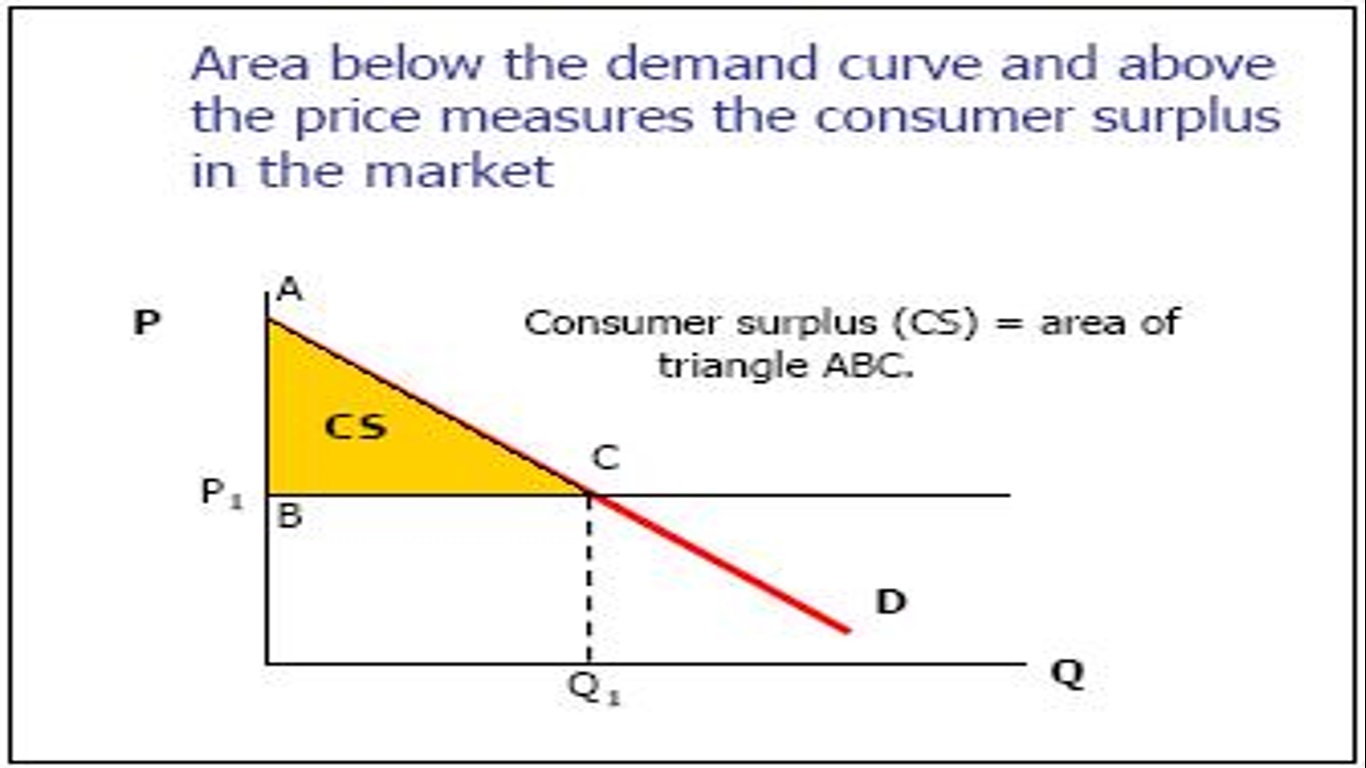
Economics can be applied to so many areas. In previous posts I have looked at a work day, a trip to the supermarket and going on a date. In this post I will look at how economics can be applied to working out or physical exercise. Not everyone feels inclined to spend time exercising. This in itself is a question that a person must ask himself/herself. Some people may feel exercising is a waste of time, some people feel they are incapable of exercise, while others may feel they are already sufficiently active that they do not need to dedicate time to exercising. For this post I will make the assumption that the decision to exercise has been made.
So we have decided that exercising is necessary. The next questions a person may face are as followers:
- How should I go about exercising?
- Where should I go to exercise?
- Am I willing to pay to go somewhere or pay for the necessary equipment?
- Do I require or prefer someone to train with me or to instruct me?
How should we go about exercising?
There are many ways to exercise such as yoga, cycling, lifting weights, jogging, basketball, swimming, etc. So how does someone decide what exercise they should do?
- It could come down to what provides the person with the most enjoyment.
- It could depend on what type of exercise is the easiest to access.
- It could relate to the persons current level of fitness.
- It could depend on what the person aims to get out of the workout (stamina vs. strength vs. speed vs. skill/technique/ability).
- It could be a combination of the above factors or any number of other factors not mentioned.

Whatever the reasons for participating in a particular exercise, the decision requires a method for making that decision. The method could be a simple gut feeling based on past experiences and requires very little effort to reach a decision. The method could be quite complicated and involve a detailed assessment of the pros and cons of each type of exercise. The answer might not be just one type of exercise activity but a combination.
Where should we go to exercise?

This will largely depend on the type of exercise selected. For example, lifting weights will most likely require a gym or that machines are installed at home. Other exercise activities such as cycling or jogging can be done in a number of different places. Ease of access is likely to play an important role in this selection process. Sports such as football, cricket, rugby, basketball, volleyball require access to sports facilities, courts and fields as well as the attendance of other players.
Are we willing to pay to go somewhere or pay for the necessary equipment?

Many exercise activities require some form of expenditure. This may come in the form of a gym membership, equipment costs, or the hiring of an expert or trainer. Different exercise activities have very different cost structures. Lifting weights for example, will require an initial cost of buying gym attire and weight sets and machines if the workout is at home. If the person chooses not to buy weights or exercise machines, then they will most likely have to pay a gym membership fee. This could be a monthly, a yearly or pay-as-you-go fee.
Cycling for example, will require the acquisition of a bicycle and riding gear. It is likely that no additional reoccurring fees are necessary as cycling can be in public places such as parks or along bikeways. If the person already has a bicycle, which they may already use for example as a mode of transport, they can exercise using this bicycle for almost no additional cost (maybe the occasional repair work or changing of tires).
Do we require or prefer someone to train with us or to instruct us?

Some exercise activities should be done with someone else or in a group. Some people find exercising in a group motivational as people can encourage each other to perform better. Most forms of sports that involve physical activity require at least two people. Sports can offer a great form of exercise and are a great form of enjoyment. Many sports are played for pleasure and the benefits of exercising are just a part of that; additional exercise activities are not required.
Sometimes people like to hire professionals to train and motivate them. This relates back to the question of how much are you willing to pay for the exercise? Personal trainers can be expensive. If money is not a problem, the person must decide what the benefits of having a trainer will be. It also comes back to the persons objectives. Do they want to be fitter and healthier or are they more interesting in acquiring a particular skill or attribute in order to perform better in a sport.
So what economic concepts have been applied to decisions relating to physical exercise?
Concept 1: Maximising of Utility
Similar to several other post in this series, the concept of maximising utility from activity is relevant. The concept of maximising utility is around obtaining as much satisfaction as possible from the limited resources we have available to obtain that satisfaction. People generally aim to select the activity that will provide them with the most amount of satisfaction per dollar spent. The word ‘aim’ is used as nobody has perfect information about every possible exercise activity. Some exercise activities are close to free in terms of money directly spent on them such as jogging. But people also consider the cost of time spent doing a particular activity. The value of time varies from person to person. Time also varies depending on the time of day, the time of week and month, and even the time of year.

Concept 2: Consumer Surplus
The engagement in some activities relates strongly to the level of satisfaction obtained and the price paid for it. Other activities do not require a price to be paid directly each time the activity is performed such as jogging. This does not therefore mean that jogging will always be the preferred activity just because it produces the highest level of satisfaction per dollar spent. The person may look to maximise their consumer surplus. Consumer surplus is the difference between what a person actually pays and what they are willing and able to pay. Jogging for example could be free but a person may only be willing to pay $1. Hence, obtain a consumer surplus of $1. Performing a range of activities in a gym may cost $12 but the person may have a willingness to pay of $15. Hence, obtain a consumer surplus of $3. Therefore, to maximise consumer surplus the person will choose the range of activities in the gym over jogging.

Concept 3: Shadow Pricing
Not every everything has a price can be determined through market forces. Time is one of those things. All exercise activities require time. If an activity is very enjoyable a long duration brings satisfaction and utility to the person. If an activity is not enjoyable a shorter duration might be preferred. People exercise for different reasons. A person who is exercising and enjoying the exercise activity is not bothered if it takes a substantial amount of time. A person who is not enjoying the exercise activity would rather a short time spent doing the activity if it yields the same results as another equally not enjoyable exercise activity with a longer duration.

So if time does not have a price, how do we value it? There are two common methods. One method is revealed preference. This involves observing behaviour and how people spend their time. For example if a person chooses to pay $5 to use a toll road to save 10 minutes on a journey, we know that person places a value of at least $5 on those 10 minutes. We can infer that this person values an hour at that particular at $30 or more.
Another method is stated preference. Stated preference (sometimes known as contingent valuation method) involves acquiring information about people’s preferences through the use of surveys. In relation to exercise activities, a series of questions would be asked such as:
- How long would you prefer to spend on a particular activity?
- How far would you travel to reach that activity?
- How long are you willing to travel to reach that activity?
- If a fee was introduced would you change activity?
- If new restrictions were put in place would you change activity?
- If results could be achieved in a shorter time with another activity would you switch to that activity?
These types of questions and many more could be asked of people to determine how people value time in regards to their exercise activities.

This takes us to the end of another ‘Economics is Everywhere’ post. I hope you have enjoyed post and how economic concepts can be applied or tacitly applied to the decisions relating to working out and exercising. I will have more posts to come within this series.

Images adopted and used in this post - Bing Images (Free to modify, share, and use commercially)
Wow what a great article. I have never thought about economics like that before. It’s a shame that economics ‘experts’ pulled onto mainstream media usually make wildly inaccurate predictions that make the whole subject look like fortune telling
Downvoting a post can decrease pending rewards and make it less visible. Common reasons:
Submit
The type of economics people are normally exposed to relates to forecasting future macroeconomic events. When in reality these events are close to impossible to predict, other than they will happen one day. Economics has a number of other useful purposes , one of them relating to understanding behaviour.
Downvoting a post can decrease pending rewards and make it less visible. Common reasons:
Submit
Nice article. Supports what I often say about economics, that it's often about psychology. Just watch a capitalist argue with a communist, and the conversation will very quickly end up being about "how people really are", the capitalist siding with Smith and Hobbes, the communist saying it's the system that makes people bad, etc.
Your posts I noticed aren't getting as much as they deserve! Have you thought about giving @steemdeepthink a try? Here's the inaugural post to guide you, if you're interested. We're trying to support good authors in the humanities.
Downvoting a post can decrease pending rewards and make it less visible. Common reasons:
Submit
Thanks @alexander.alexis. There are many similarities between economics and psychology. I will take a look at @steemdeepthink. It would be great to get more exposure.
Downvoting a post can decrease pending rewards and make it less visible. Common reasons:
Submit
Not very active at the moment, the discord channel, the guys who greeted you were bots! But you can drop your posts at the general-post-promotion room so others will notice, and check out posts from the deep-think-post-promotion room, and engage with the authors, read, comment, vote, and I'm sure many will do likewise. Sent you a DM on discord as well.
Downvoting a post can decrease pending rewards and make it less visible. Common reasons:
Submit
@originalworks please take a look at my post, thanks.
Downvoting a post can decrease pending rewards and make it less visible. Common reasons:
Submit
The @OriginalWorks bot has determined this post by @spectrumecons to be original material and upvoted it!
To call @OriginalWorks, simply reply to any post with @originalworks or !originalworks in your message!
To enter this post into the daily RESTEEM contest, upvote this comment! The user with the most upvotes on their @OriginalWorks comment will win!
For more information, Click Here!
Special thanks to @reggaemuffin for being a supporter! Vote him as a witness to help make Steemit a better place!
Downvoting a post can decrease pending rewards and make it less visible. Common reasons:
Submit
when people pay for gym, they pay for an idea of a pretty body without thinking that they could do walking or some other exercises at home) but i have to admit, i myself also pay for a gym but only because they have a swimming pool, i do love swimming, and there is now way to do it in a bath :)
Downvoting a post can decrease pending rewards and make it less visible. Common reasons:
Submit
You could try swimming in the sea or in a lake. Still it is not the same experience as swimming in a pool.
Downvoting a post can decrease pending rewards and make it less visible. Common reasons:
Submit
it's not... and lake would be even better! but sadly this kind of swimming it is limited by seasons. When i was in school, we lived not far away from a very nice pond, and believe me, it was the place where i spend a least 1-2 hours swimming from one shore to another almost every day of summer :D
Downvoting a post can decrease pending rewards and make it less visible. Common reasons:
Submit
You are so creative with explaining economics! We definitely like to pay for value, in this case- many people have different workout preferences. Wouldn't it be great if working out didn't have such a bad stigma, and people recognized the value of their health? :) oh, psychology! Putting effort and $ into something to get something in return isn't that bad :)
Downvoting a post can decrease pending rewards and make it less visible. Common reasons:
Submit
Investment of money and effort to receive a return (in this case better health) is a fundamental of economics. I am glad you enjoyed my post.
Downvoting a post can decrease pending rewards and make it less visible. Common reasons:
Submit
Congratulations! This post has been upvoted from the communal account, @minnowsupport, by Alexander Alexis from the Minnow Support Project. It's a witness project run by aggroed, ausbitbank, teamsteem, theprophet0, someguy123, neoxian, followbtcnews/crimsonclad, and netuoso. The goal is to help Steemit grow by supporting Minnows and creating a social network. Please find us in the Peace, Abundance, and Liberty Network (PALnet) Discord Channel. It's a completely public and open space to all members of the Steemit community who voluntarily choose to be there.
Downvoting a post can decrease pending rewards and make it less visible. Common reasons:
Submit
Thank you very much @minnowsupport for the upvote.
Downvoting a post can decrease pending rewards and make it less visible. Common reasons:
Submit
This post recieved an upvote from minnowpond. If you would like to recieve upvotes from minnowpond on all your posts, simply FOLLOW @minnowpond
Downvoting a post can decrease pending rewards and make it less visible. Common reasons:
Submit
Thanks again @minnowpond.
Downvoting a post can decrease pending rewards and make it less visible. Common reasons:
Submit